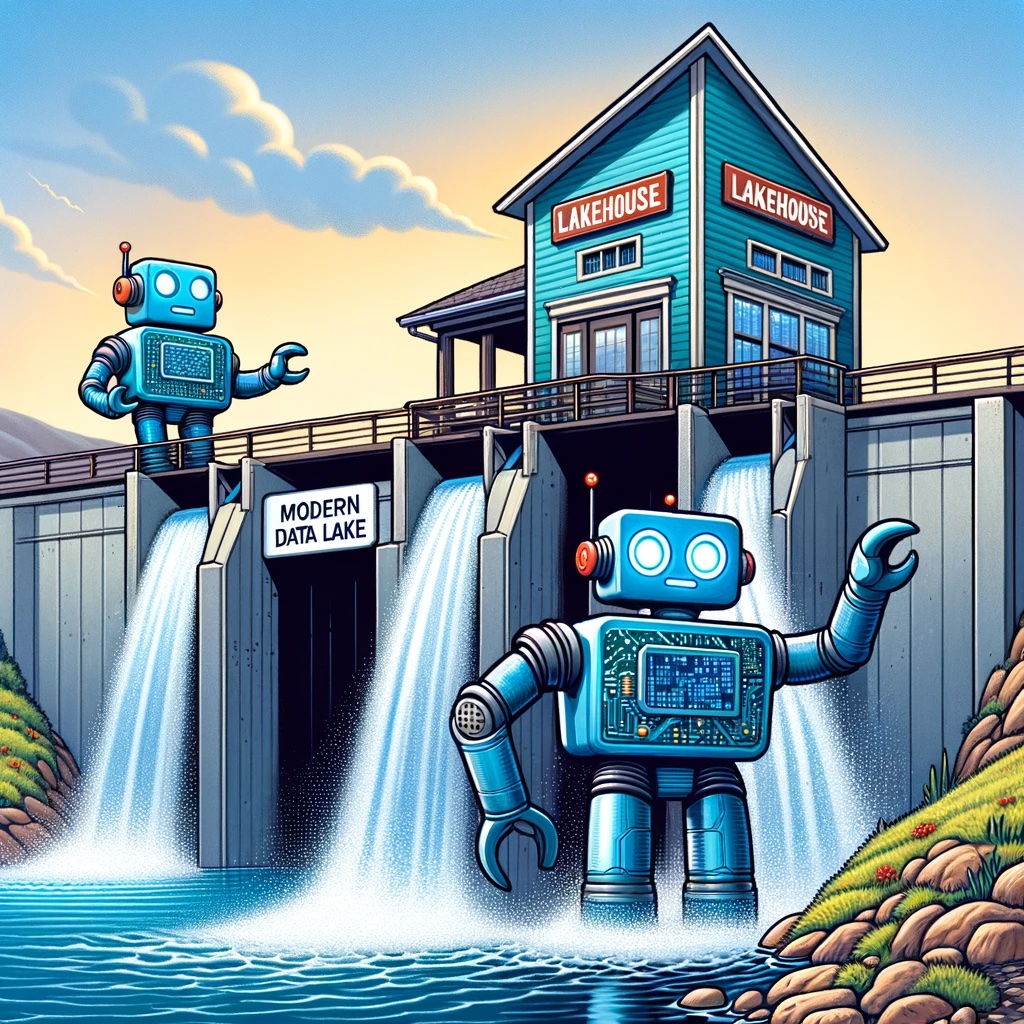The era of generative AI has ushered in a new wave of innovation and disruption across industries. As these models become more sophisticated and widely adopted, the demand for high-quality, diverse, and well-structured data has skyrocketed. This may have potentially reignited interest in modern data lake architectures, which offer a compelling solution for managing the vast amounts of data required to train and operate generative AI systems.
Traditional data lakes were often criticized for their lack of data governance, schema enforcement, and performance optimizations. However, the advent of technologies like Delta Lake and Apache Iceberg has transformed data lakes into robust, enterprise-grade data management platforms, now commonly referred to as “lakehouses.”
These modern data lakes leverage cloud object storage as a centralized, scalable, and cost-effective data repository. They introduce features like ACID transactions, data versioning, schema evolution, and performance optimizations, addressing many of the historical challenges associated with data lakes. This combination of scalability, data integrity, and performance makes them well-suited for the demanding data requirements of generative AI workloads.
Here are a few key reasons why modern data lakes are gaining traction in the generative AI space:
☑ Data Diversity: Generative AI models thrive on diverse, multi-modal data sources, including text, images, audio, and video. Modern data lakes can easily ingest and store these heterogeneous data types in their raw form, providing a comprehensive data repository for model training.
☑ Data Versioning and Reproducibility: The ability to version data and query historical snapshots is crucial for AI model development, testing, and deployment. Modern data lakes, with their built-in data versioning capabilities, enable reproducible experiments and auditing, ensuring transparency and trustworthiness in AI systems.
☑ Schema Flexibility: Generative AI models often require constant tweaking and refinement, leading to evolving data schemas. Modern data lakes support schema evolution, allowing seamless adaptation to changing data structures without costly data migrations.
☑ Scalability and Cost-Efficiency: Training large generative AI models requires massive datasets, often in the petabyte range. Modern data lakes, built on cloud object storage, offer virtually unlimited scalability and cost-effective storage, making them an ideal choice for managing these vast data repositories.
☑ Open Ecosystem: Many modern data lake solutions, like Delta Lake and Iceberg, are open-source and integrate seamlessly with various data processing engines and AI/ML frameworks, fostering an open and collaborative ecosystem for generative AI development.
As the generative AI revolution continues to accelerate, the demand for robust, scalable, and flexible data management solutions will only intensify. Modern data lakes, with their unique blend of data lake scalability and data warehouse-like management capabilities, are well-positioned to become the foundational focus of data platforms for this new era of AI innovation.



